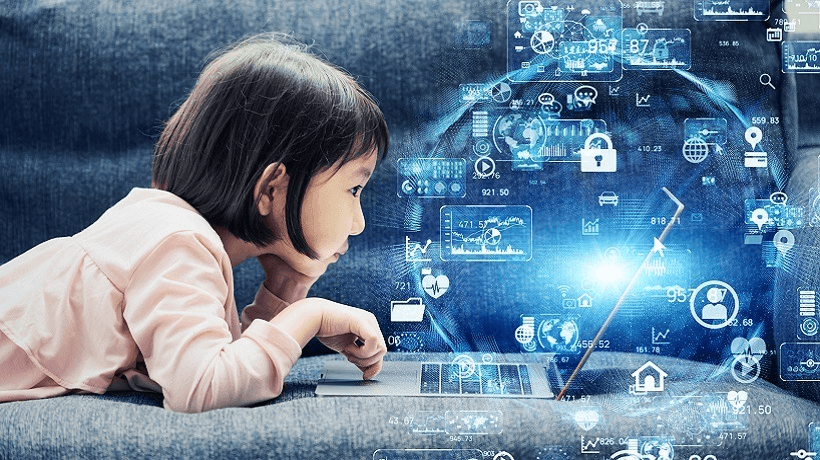The Role of Technology in Modern Education: Insights from the AI Panel at the Sri Sri Awards
Education is undergoing a profound transformation, with technology playing a pivotal role in reshaping how we learn, teach, and interact with knowledge. At the Sri Sri Awards AI Panel, leading experts gathered to discuss the impact of artificial intelligence and other technologies on modern education.
This panel offered valuable insights into how technology can enhance the educational landscape, making learning more accessible, personalised, and efficient.
Key Takeaways from the AI Panel on Technology in Education
- Technology’s Role: Enhancing learning experiences and making education more accessible.
- AI in Education: Personalising learning paths and automating administrative tasks.
- Digital Divide: Addressing challenges in access to technology.
- Future of Learning: Blending human interaction with AI for a balanced approach.
How Technology is Shaping Modern Education
In today’s world, technology isn't just an accessory to learning—it's become a central component of education. From AI-driven learning platforms to virtual classrooms, technology is helping to make education more adaptable and inclusive. The AI panel at the Sri Sri Awards highlighted several ways in which tech is revolutionising the learning environment.
1. Personalised Learning through AI
Adaptive Learning Systems: AI-driven platforms can tailor educational content to individual student needs. This personalisation ensures that students learn at their own pace, which is especially important in diverse classrooms.
Data-Driven Insights: AI collects and analyses student performance data, allowing educators to identify areas where students need extra help. This data helps in designing targeted interventions.
2. Breaking Down Geographic Barriers
Global Classrooms: Virtual learning environments, powered by platforms like Zoom or Google Classroom, enable students from different corners of the world to access quality education.
Access to Resources: Educational technology offers students access to a wealth of resources—digital libraries, online courses, and virtual labs—breaking down the barriers of location and financial constraints.
3. Automating Administrative Work
Streamlining Tasks: AI can handle repetitive administrative tasks, like grading or scheduling, allowing teachers to focus more on instruction and mentorship.
Efficiency in Management: Schools can use technology for data management, ensuring a smooth workflow. This can reduce the workload on administrative staff, making the educational institution run more efficiently.
4. Enhancing Student Engagement
Gamified Learning: Technology allows the integration of gamification into education, which can make learning more interactive and enjoyable. Tools like quizzes, interactive simulations, and digital badges can motivate students to engage more deeply with the content.
Virtual Reality (VR) and Augmented Reality (AR): These technologies create immersive learning experiences. For example, history lessons can turn into virtual tours of ancient cities, and biology classes can offer 3D views of human anatomy.
Challenges Technology Brings to Education
While technology offers many benefits, the panel also emphasised the importance of addressing the challenges associated with tech integration in education.
1. The Digital Divide
Inequality in Access: Not all students have access to devices or reliable internet connections. This gap can exacerbate educational inequalities, particularly in low-income and rural areas.
Possible Solutions: Governments and educational institutions must prioritise providing the necessary infrastructure, such as affordable internet and devices, to ensure equal access for all students.
2. Over-Reliance on Technology
Human Touch in Learning: While AI and technology can streamline processes, the human element of teaching—empathy, mentorship, and personal interaction—remains irreplaceable. Technology should complement, not replace, human interaction in education.
Maintaining Balance: Schools and educators need to strike a balance between tech-based learning and traditional methods, ensuring that students don’t lose out on critical soft skills that develop through interpersonal interactions.
The Future of Education: Insights from the AI Panel
The experts at the Sri Sri Awards AI Panel offered a visionary look at the future of education. According to them, the future will see an even deeper integration of technology in the classroom, with AI playing a significant role. However, they were quick to point out that technology alone cannot transform education—it must be guided by educators who understand how to harness it for the betterment of students.
1. Blended Learning Environments
Hybrid Models: The panel predicted a rise in blended learning environments where in-person teaching is supplemented with online tools. This approach can offer the best of both worlds, ensuring students have a flexible yet structured learning experience.
2. Lifelong Learning and Upskilling
Continuous Education: AI can also support continuous, lifelong learning by providing opportunities for individuals to upskill throughout their careers. The rise of e-learning platforms ensures that learning is no longer limited to formal institutions.
3. Ethical Considerations in AI
Bias in AI Systems: As AI systems become more embedded in education, there is a growing concern about bias in algorithms. Panelists emphasised the need for ethical AI systems that ensure fairness and inclusivity in educational tools.
Data Privacy: Protecting student data is another key concern. Institutions must prioritise data privacy and ensure that AI tools do not compromise the security of personal information.
Impact of Technology on Teachers
Empowerment through Tools: Rather than replacing educators, technology is seen as an empowering tool that allows teachers to be more effective. AI tools can provide them with insights, help manage large classrooms, and free up time for personalised attention to students.
Teacher Training: To effectively integrate technology, teachers need proper training in using AI tools and digital platforms. This ensures they can maximise the potential of these technologies in their classrooms.
Conclusion: The Role of Technology in Modern Education
The role of technology in education, as highlighted by the Sri Sri Awards AI Panel, is transformative but nuanced. While AI and digital tools offer powerful solutions to enhance learning, accessibility, and engagement, the importance of human guidance in education remains paramount. The future of education lies in striking the right balance between technological innovation and the timeless values of mentorship, empathy, and personalised attention.
Frequently Asked Questions
1. How does AI improve personalised learning?
Ans - AI tailors educational content to individual needs, providing a customised learning path for each student based on their progress and performance.
2. What are the key challenges in implementing technology in education?
Ans - The biggest challenges include the digital divide—lack of access to technology—and the risk of over-reliance on tech, which may diminish human interaction.
3. What is the future of AI in education?
Ans - AI is expected to play a more significant role in creating hybrid learning environments, offering lifelong learning opportunities, and supporting teachers with personalised student insights.
4. Can technology fully replace teachers in the future?
Ans - No, the human aspect of teaching, such as empathy, mentorship, and guidance, cannot be replaced by technology. AI serves as a tool to assist, not replace, teachers.
5. What are the ethical concerns with AI in education?
Ans - Key concerns include bias in AI algorithms and the protection of student data privacy. Ensuring ethical AI use is critical.
6. How can technology help bridge the educational gap?
Ans - Technology can provide access to quality education regardless of geographic location, but efforts must be made to address the digital divide by ensuring all students have access to the necessary tools and infrastructure.

